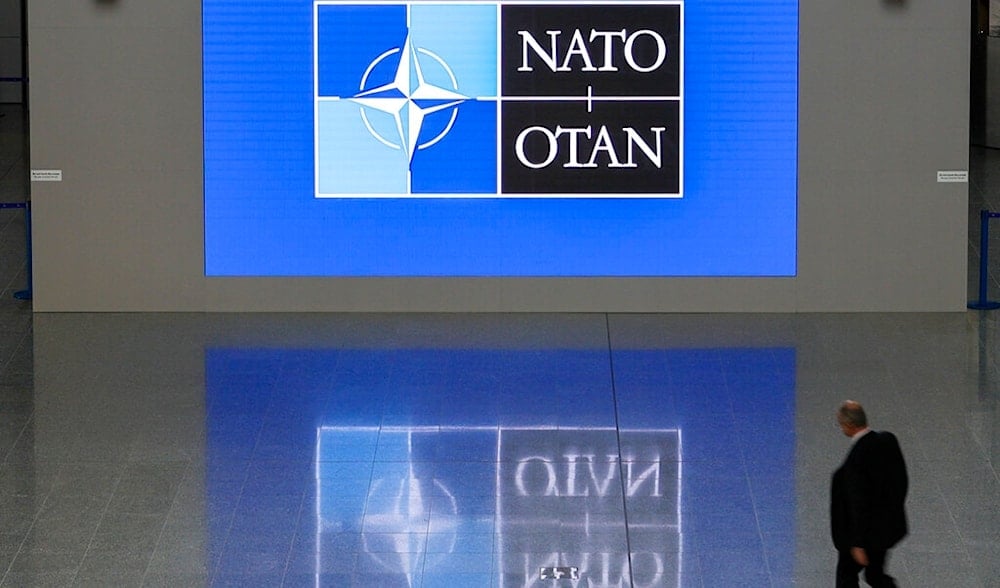Delays hit NATO’s new Ukraine assistance command center
NATO’s new command center in Wiesbaden, designed to coordinate training and military aid for Ukraine, faces delays as member states lag in staffing commitments.
-

A man walks in the lobby of the NATO headquarters, Wednesday, on November 16, 2022, in Brussels. (AP)
The launch of NATO’s new command center for coordinating training and security assistance to Ukraine is facing delays, according to a report by Bloomberg.
The NATO Security Assistance and Training for Ukraine command, initially set to open this fall in Wiesbaden, Germany, with 700 personnel, remains in development.
Only a few hundred staff members are currently in place, according to the report, as member countries have been slow to fulfill their commitments to send personnel, the sources said, speaking anonymously about the issue.
This command center was a key outcome of NATO's summit in July, aimed at enhancing military aid coordination for Ukraine. Its establishment is intended to bring greater predictability to assistance and safeguard it from potential shifts in US policy under US President-elect Donald Trump, who may scale back American support.
It is worth noting that since 2022, the US-led Ukraine Defense Contact Group has managed military assistance, convening over 50 nations at Germany’s Ramstein airbase. The group will continue to operate alongside the new NATO command. NATO’s new Secretary General, Mark Rutte, visited the Wiesbaden hub in mid-October, shortly after assuming office, as part of efforts to accelerate its setup.
A NATO official confirmed that work on the command center is ongoing, with personnel stationed in Wiesbaden and at logistics hubs in the alliance's eastern regions. Meanwhile, NATO foreign ministers are meeting in Brussels this week, with Ukraine high on their agenda.
UK, France seek European role in Ukraine ceasefire by troop deployment
In news regarding the war in Ukraine, Britain and France are reportedly in confidential talks, according to a report by Mirror, to explore the potential deployment of their troops to Ukraine as part of a ceasefire monitoring initiative. According to a senior NATO official cited in the report, these discussions are being held in London and Paris, "not at the NATO level."
One proposed scenario involves "an Anglo-French contingent patrolling the contact line between Ukraine and Russia in order to monitor a ceasefire that may be achieved as a result of peace talks."
The cited official noted that such preparations aim to ensure European involvement in mediation efforts that US President-elect Donald Trump could lead.
French Foreign Minister Jean-Noel Barrot stated that Paris is not ruling out troop deployment, while former UK Prime Minister Boris Johnson suggested that a multinational European force could help monitor the Russia-Ukraine border for an "end state" while rejecting the notion of troop deployment.
However, the report stressed, UK Foreign Secretary David Lammy reiterated Britain’s stance against deploying combat troops to the conflict zone, emphasizing continued support through training instead. "We are very clear that we stand ready and continue to support the Ukrainians with training particularly, but there has been a long-standing position that we are not committing UK troops to the theatre of action," Lammy said.
Read more: Kiev demands clarity on NATO membership path

 3 Min Read
3 Min Read









